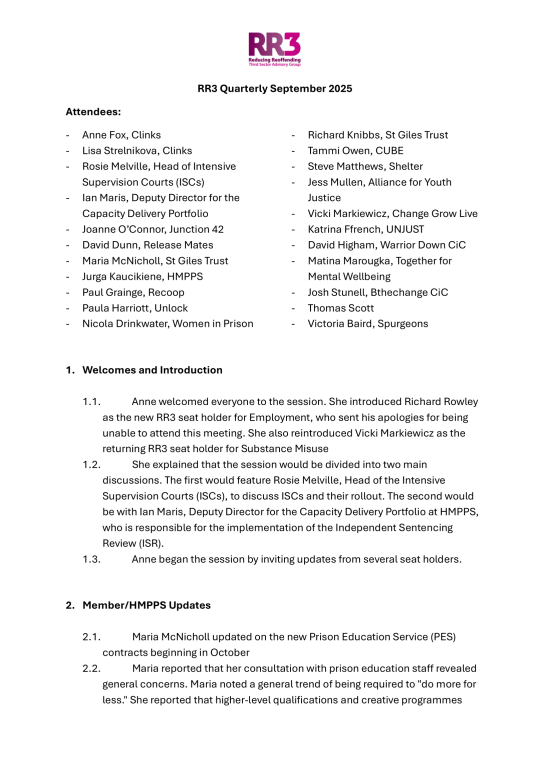When we begin the journey of influencing in Parliament, we often think about working with MPs to bring about change. But it is important to remember that the authority to make law in the UK has three parts: the Monarch, the House of Commons, and the House of Lords. As the unelected House, the Lords often receive less attention than the Commons, but members of the House of Lords – also called peers – are able to propose and amend legislation, hold government ministers to account, and debate important issues.
In this blog, we will explore some of the ways voluntary organisations might try to work with peers to influence policy.
The composition of the House of Lords
At the time of writing, there are a total of about 780 members of the House of Lords, and no one party has a majority. While the Lords considers itself to be primarily a revising chamber (making changes to proposed laws going through Parliament), the lack of a party majority means peers can prove quite difficult for the government of the day.
The peers who sit in the Lords broadly come from one of three groups.
The majority are Life Peers, who receive a title and are appointed for life.
There are also 92 Hereditary Peers, whose right to sit in the House comes from their inherited peerage. Most of these peers are elected to sit in the Lords by other Hereditary Peers. When one dies or retires, there is a by-election amongst hereditary peers to choose a replacement, so their number in the House remains at 92. Together, Life Peers and Hereditary Peers make up the Lords Temporal.
There are also the Lords Spiritual, made up of 26 Church of England Bishops who sit in the Lords ex-officio. Their number will always include the Archbishops of Canterbury and York, and the Bishops of London, Durham, and Winchester.
Why think about influencing the House of Lords?
Despite its unusual composition, the Lords has an active role in legislating and holding the government to account. This means it can be useful to consider the opportunities for working with peers to influence policy, as part of an overall influencing strategy. There are a several reasons why it might be particularly useful to influence peers:
-
In the Lords, no one party has a majority. This means there could be greater opportunities to secure changes that are not supported by the government.
-
Peers are generally appointed and have life tenure, meaning they are not considering their own re-election when deciding what position to take on an issue. Therefore some may be more open to supporting positions that could be perceived as “unpopular” if there are good reasons and arguments for doing so.
-
A significant proportion of peers have no party affiliation. These are mostly the crossbench group of peers, named after the position of the benches on which they sit in the Chamber. These peers can be effective allies when seeking to build cross-party support around an issue.
-
Many peers have particular expertise based on their previous work and experiences. For example, current members of the Lords include Lord Judge, the former Lord Chief Justice; Lord Hogan-Howe, the former Metropolitan Police Commissioner; and Lord Bird, the co-founder of the Big Issue. The late Lord Ramsbotham, a former Chief Inspector of Prisons, sat in the Lords for 18 years until his death last year. This means peers could be more familiar with the details or nuance of a particular situation, and the existing evidence base on an issue.
-
The Lords generally has more time to consider legislation than the Commons, as the government cannot pass motions to limit the length of debate. Moreover, except in exceptional circumstances, peers do not take more than one stage of a piece of legislation on the same day. Consequently, they can be better placed to consider more technical aspects of an issue or explore changes to legislation in more detail.
-
Both Houses must agree on the exact working of a Bill in order for it to pass. After a Bill has been through both Houses of Parliament, it may need to pass back and forth between the Commons and the Lords, as each House considers the other’s amendments. During this stage, often called “Ping-pong”, peers are able to delay passage of a Bill by continuing to vote for or against amendments against the desires of the government. Depending on the nature of the Bill, this may present a useful opportunity to try to force concessions from the government.
-
The government appoints Ministers from the Lords as well as the Commons. So, working to influence the peer who is a Minister in the relevant government department can also be an effective way to get your message to reach the government.
Considerations when influencing peers
As a result of the relationship between the Commons and the Lords, and the way in which peers tend to work, there are number of things that are important to consider when exploring whether working with peers is likely to be an effective part of an influencing strategy.
-
The “Salisbury Convention” means peers usually do not seek to block a Bill that is included in the governing party’s election manifesto. They may also be less keen to make major amendments to such Bills.
-
When a Bill is going through Ping-pong, both Houses will usually make every effort to reach a compromise so a Bill can become law. However, if one House insists on an amendment, and the other insists on its disagreement with that amendment, or a clear stalemate has been reached, the Bill will be lost. This is sometimes referred to as “double insistence”.
-
There are statutory limits on the powers of the Lords. The Parliament Acts mean peers are only able to delay most legislation for about a year, rather than veto it. The Lords are also not able to amend, block, or delay “Money Bills” that are designed to raise money through taxes or spend public money. The House of Commons Library has briefing notes that provide more details about the Parliament Acts and the relationship between the Commons and the Lords.
-
Many peers choose to only work on areas in which they have relevant experience or expertise. This means it is particularly important to determine which peers are likely to be interested in the issue you are looking to influence. It can be helpful to look at a peer’s background, the issues they have spoken about before, and the lists of speakers for upcoming debates to help identify interested members.
The impact of the House of Lords
We have seen recently that peers can have a significant impact on legislation. For instance, they successfully asked the government to think again on a number of provisions in the Nationality and Borders Act 2022. In addition, peers prevented the government from adding further police powers around protest to the Police, Crime, Sentencing and Courts Act 2022 during its passage through Parliament, and engagement by the voluntary sector with peers led to a compromise on the issue of Friday releases. This saw the government agree to support the separate private member’s bill on Friday releases in return for an amendment to the Police, Crime, Sentencing and Court Act being dropped.
In the expert seminar on campaigning in the face of hostility that Clinks hosted in 2022 as part of the Stronger Voice project, The Traveller Movement explored how they had considered working with peers as part of their parliamentary work. They discussed the benefits of engaging with peers, as well as MPs, and the real prospect for bringing about change in the House of Lords. They also suggested the Lords is beginning to change the way it views itself and its role, particularly with regards to civil liberties. You can hear more about The Traveller Movement’s experiences in the recording of their expert seminar, and in a forthcoming written case study.
Including the House of Lords as part of an influencing strategy
Having explored the potential benefits, considerations, and impacts of working with peers to bring about change, we can see how influencing the Lords can help organisations to achieve positive change. When thinking about the objectives you are looking to achieve in influencing, it is important to think strategically about the available approaches to give the best chance of success. By sharing some background about the House of Lords and its work, we hope to have been able to expand the options available when developing influencing strategies.
What's new
Blogs
Violence Against Women and Girls (VAWG) Strategy Blog
Publications
Latest on X
The role is for a leader from an organisation focused on racially minoritised people, with expertise in service delivery, policy, advocacy, or related areas in criminal justice. Racial disparities are present at every CJS stage. This role ensures these voices are central in shaping policy to help address and eradicate them. Apply by Mon 18 Nov, 10am. More info: https://www.clinks.org/voluntary-community-sector/vacancies/15566 #CriminalJustice #RR3 #RacialEquity

